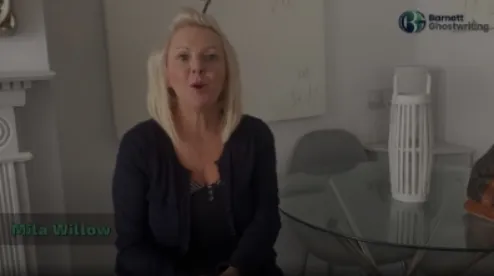
Tunis, the vibrant capital of Tunisia, has always been a crossroads of cultures, languages, and ideas — and its publishing industry reflects that diversity. In 2025, the city’s literary landscape continues to grow, blending deep-rooted Arabic and Francophone traditions with modern digital innovation. Tunisian publishers now serve a wide range of authors — from poets and scholars to debut novelists and independent storytellers — while new hybrid and digital presses have made publishing more accessible than ever before.
Writers in Tunis can choose from an impressive variety of publishing paths, whether they seek the prestige of established literary houses, the reach of international service-based publishers, or the flexibility of self-managed digital platforms.
1. Barnett Ghostwriting
Barnett Ghostwriting is presented here as a full-service provider that combines ghostwriting, quality editing, cover design and publishing support. While the company markets itself internationally and offers turnkey services aimed at authors who want to move from idea to finished book, its inclusion here recognizes the role that ghostwriting and hybrid publisher-service houses play today in helping authors in Tunis and beyond bring projects to market. Barnett emphasizes manuscript development, production services and promotional add-ons that appeal to busy professionals and first-time authors.
- Specialties: ghostwriting, developmental editing, book production and marketing packages.
- Strengths: hands-on project management for busy authors; packages for eBook, print and audiobook formats.
- Who it suits: professionals, executives, and non-fiction authors seeking a guided path to publication.
- Note: authors seeking traditional editorial acquisition should check whether a service-provider’s model matches their goals (self-publish vs. trade publishing).
2. Éditions Elyzad
Éditions Elyzad is one of Tunisia’s best-known independent literary houses, with a reputation for careful editorial work across French and Arabic titles. The publisher is frequently associated with contemporary fiction, poetry and translations, and it plays an important role in Tunis’s literary festivals and cultural circuits. Elyzad’s catalog is valued for literary quality and for supporting voices that contribute to regional conversations in the Maghreb and Francophone world.
- Specialties: literary fiction, poetry, essays, translations (Arabic ↔ French).
- Strengths: editorial curation, design standards, and a strong presence in literary circles.
- Who it suits: literary authors and translators aiming for cultural impact rather than mass commercial lists.
3. Cérès Éditions
Cérès Éditions has a long presence in the Tunisian market and is recognized for publishing works in the humanities, social sciences and general literature. The house often balances academic and general-interest titles, making it a common choice for scholars and writers who need reliable editorial and production support. Cérès occupies a role between academic presses and independent literary publishers.
- Specialties: academic titles, social sciences, intellectual non-fiction, trade books.
- Strengths: attention to scholarly standards, local distribution networks, and cross-market knowledge.
- Who it suits: academics, researchers and authors of culturally rooted non-fiction.
4. Sud Éditions
Sud Éditions is noted for contributing to the region’s Francophone literary output, including novels, essays and works that engage with Tunisia’s cultural and historical questions. It often publishes authors whose work speaks to both local and wider North African readerships, and it supports translations and editions that bridge Arabic and French publishing spheres.
- Specialties: Francophone literature, cultural studies, translations.
- Strengths: regional focus, editorial sensitivity to cultural context.
- Who it suits: authors working in French or seeking exposure within the francophone literary network.
5. Med Ali Éditions (Éditions Mohamed Ali)
Med Ali Éditions is a veteran independent Tunisian publishing house with a catalog spanning general literature, history and cultural works. Founded decades ago, the publisher is known for consistent production values and for serving as a reliable outlet for established and emerging Tunisian authors. It is often cited in directories of Tunisian presses and participates in national cultural programming.
- Specialties: general literature, historical and cultural titles.
- Strengths: long local history, production quality, relationships with bookstores and cultural institutions.
- Who it suits: authors seeking a traditional, reputable Tunisian publisher.
6. Maison Tunisienne du Livre (Maison du Livre)
Maison du Livre (often referred to in English as the Tunisian House of the Book) functions as both an institutional promoter of reading and as a publisher/organizer linked to national literary programming. Its remit usually includes supporting translations, educational works, and initiatives that encourage public access to books and reading. The organization’s activities are valuable for authors interested in cultural outreach and festivals.
- Specialties: translations, educational and cultural outreach publications.
- Strengths: institutional reach, festival participation, public programs promoting reading.
- Who it suits: authors who want inroads to cultural programming and public literary events.
7. Déméter Éditions
Déméter Éditions is recognized for its focus on children’s literature and educational content. Publishers that specialize in children’s books play an essential role in a country’s literary ecosystem by nourishing young readers and supplying schools and libraries with age-appropriate content. Déméter balances illustrated works and pedagogical series that support school curricula.
- Specialties: children’s books, illustrated titles, educational series.
- Strengths: experience in children’s publishing, relationships with schools and libraries.
- Who it suits: authors and illustrators of children’s fiction and publishers of educational content.
8. Éditions Nirvana
Éditions Nirvana is one of the independent houses that has been identified in recent surveys and lists as active in contemporary Tunisian publishing. The house leans toward contemporary fiction and poetry and often seeks out debut authors with original voices. Independent publishers like Nirvana help diversify the market by taking editorial risks that larger houses may avoid.
- Specialties: contemporary fiction, debut authors, poetry.
- Strengths: editorial openness to new voices, small-press agility.
- Who it suits: emerging writers seeking an editor-driven process and visibility at literary events.
9. Arabesques Éditions
Arabesques Éditions appears in multiple listings of Tunisian publishers and contributes across genres, including children’s literature, fiction and cultural works. The publisher is part of a broader network of independent presses that sustain Tunis’s small but dynamic book market. Arabesques supports niche projects and has produced titles that speak to both local tastes and broader Maghreb readerships.
- Specialties: children’s books, cultural and general literature.
- Strengths: diverse catalog, collaborative projects with authors and illustrators.
- Who it suits: authors of culturally rooted works and children’s literature.
10. Tunisia Digital Publishing (Digital-first houses and boutique presses)
Digital and hybrid publishers such as Tunisia Digital Publishing represent the wave of tech-friendly houses that emphasize e-books, print-on-demand and online distribution. These services are especially relevant for authors who want fast production, flexible print runs and direct digital reach. While not a single traditional “house,” digital publishers are increasingly listed among top options because they fill an important market niche in 2025.
- Specialties: e-books, digital distribution, print-on-demand and hybrid services.
- Strengths: speed to market, low upfront print costs, adaptable formats (e-book, audiobook).
- Who it suits: authors prioritizing rapid publication, global digital reach, or niche audiences.
Practical advice for authors in Tunis (short guide)
Publishing in Tunis offers different paths: traditional trade publishing, institutional presses and hybrid/service publishers. Here are practical steps authors should consider when deciding where to submit or whom to hire:
- Clarify your goal: literary recognition, educational distribution, or commercial sales. The right publisher depends on which of these matters most.
- Match manuscript to publisher: smaller literary houses favor distinctive literary projects; academic presses value peer-reviewable scholarship; children’s publishers need strong illustration and curriculum sense.
- Prepare a professional submission: concise synopsis, author bio, sample chapters and a clear proposal for non-fiction works. Even if you plan to work with a ghostwriter or service house, a polished package helps.
- Consider language choices: publishing in Arabic, French or English determines which houses and networks will be most responsive. Many Tunisian publishers operate bilingually but have clearer strengths in one language.
- Ask about rights and distribution: confirm territorial rights, translation rights and who handles distribution—important for reaching readers outside Tunisia.
- Budget for marketing: even with a reputable publisher, authors should plan to participate in promotions, readings and social media outreach.
Budgeting and Typical Costs (what authors should prepare for)
Even with a publisher, authors often face some costs. If you choose a service/ghostwriting route, expect fees to cover:
- Developmental editing and copyediting
- Cover design and interior layout
- ISBN registration and legal deposit costs (if any)
- Print proofs and initial print run expenses (for small presses)
- Marketing materials: ARCs, posters, social media ads, launch events
- Optional: audiobook production, translation, distribution fees
Authors should prepare a simple budget that separates one-time production costs from ongoing marketing spend. For self-funded projects consider a contingency of 10–20%.
Editing, Design and Production — standards Tunisian readers expect
High production quality matters in both trade and educational markets. Typical production steps:
- Developmental editing (structure, pacing, argument)
- Line editing and copyediting (language, grammar, clarity)
- Typesetting and interior design (legible typography, consistent styling)
- Cover design (sell the book’s genre at a glance)
- Proof corrections and author sign-off
- Printing (offset for larger runs; POD for low-volume) and/or ebook conversion (EPUB, MOBI)
- Distribution and cataloging (ISBN, metadata, bookstore listings)
Authors should request proofs and approve final files — many small errors are fixable at the proof stage but costly to change after mass printing.
Practical Submission Checklist (one-page)
- Short cover letter stating why your manuscript fits the house.
- Two-paragraph author bio with any relevant credentials or previous publications.
- One-page synopsis (for novels) or detailed proposal (for non-fiction: chapter outline, market, comparable titles).
- Three sample chapters or full manuscript if requested.
- Formatting: double-spaced, readable font, page numbers, title and word count on each page.
- Follow publisher submission guidelines exactly.
Conclusion
Tunis’s publishing scene in 2025 offers a mix of respected literary houses, specialist presses for children and academia, and an expanding set of hybrid/digital services that make publication more accessible. Whether you choose a traditional independent like Éditions Elyzad or a service provider such as Barnett Ghostwriting, the best fit depends on your book’s genre, your language, and your long-term goals for readership and rights. The ten entries above reflect both established local publishers and the new service models that authors now use to get books into readers’ hands. If you’re an author in Tunis, research each house’s recent catalog, attend local book events where possible, and prepare a submission or proposal that clearly communicates your work’s audience and impact.





